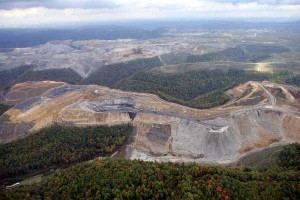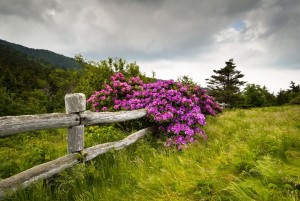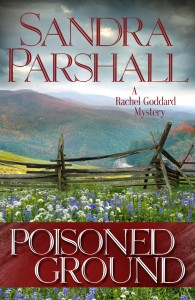 Relevant History welcomes Sandra Parshall, the author of six Rachel Goddard mysteries, set in current-day Virginia. Her 2006 debut, The Heat of the Moon, won the Agatha Award for Best First Novel. Her latest title is Poisoned Ground (March 2014). A longtime member of Sisters in Crime, she has served on the national board and managed the SinC members online community for many years. She lives in Northern Virginia with her husband, Gerald Parshall, a veteran Washington journalist. For more information, visit her website.
Relevant History welcomes Sandra Parshall, the author of six Rachel Goddard mysteries, set in current-day Virginia. Her 2006 debut, The Heat of the Moon, won the Agatha Award for Best First Novel. Her latest title is Poisoned Ground (March 2014). A longtime member of Sisters in Crime, she has served on the national board and managed the SinC members online community for many years. She lives in Northern Virginia with her husband, Gerald Parshall, a veteran Washington journalist. For more information, visit her website.
*****
The fight over a development project in my latest novel, Poisoned Ground, mirrors events taking place throughout the U.S. today, but for Appalachia it’s nothing new. The history of the southern mountains—southwestern Virginia, West Virginia, eastern Kentucky and Tennessee—where my series is set, is a long, sad tale of exploitation and degradation, with large corporations protected by government as they forced people off their land and destroyed the environment in pursuit of natural gas, timber, and above all, coal.
When big companies moved into Appalachia in the nineteenth century to exploit its mineral wealth, they paid farmers and homesteaders a pittance for “mineral rights” and assured them they would continue to own the surface land. However, the contracts authorized the companies to do whatever was necessary to extract the minerals, and that usually meant making the surface land uninhabitable for its “owners.” Corporations, which literally owned entire towns, put friendly politicians into local and state offices, and legislatures traditionally defended the companies against complaints and attempts at regulation.
Until the mid-20th century, underground coal mining provided the most secure employment for the men of Appalachia, although those jobs came at a huge cost to personal health: lung disease, injured backs, the constant specter of possible death in a cave-in or a fire ignited by a gas explosion. As many deep underground mines played out, companies increasingly went after the coal in seams inside the towering mountains.
 (Photo credit: National Resources Defense Council) Strip mining had been practiced for a hundred years, but in the 1970s a method even more devastating was adopted: mountaintop removal mining (MTR). The tops of the mountains are blown apart with explosives, and the resulting rubble is bulldozed out of the way. Today more than a million acres and more than 500 mountains, once densely forested havens for wildlife and people alike, have been reduced to wasteland by MTR mining, surrounding homes are buried under rubble, and streams run red with toxic chemicals draining from mine sites.
(Photo credit: National Resources Defense Council) Strip mining had been practiced for a hundred years, but in the 1970s a method even more devastating was adopted: mountaintop removal mining (MTR). The tops of the mountains are blown apart with explosives, and the resulting rubble is bulldozed out of the way. Today more than a million acres and more than 500 mountains, once densely forested havens for wildlife and people alike, have been reduced to wasteland by MTR mining, surrounding homes are buried under rubble, and streams run red with toxic chemicals draining from mine sites.
Times have changed, and citizens have risen up in protest against this wholesale destruction of the region, but so much damage has been done that no hope remains of returning the mountains to anything resembling their former pristine beauty. The cherished jobs are vanishing along with the landscape as machines replace men. Only two percent of Appalachia’s population is now employed in mining.
In the past the Melungeon people—who would have been ancestors of some of my characters—suffered in additional ways. Because they were mixed race and denied the rights of pure Caucasians, Melungeons were unceremoniously relieved of their farmland by any whites who wanted it, and were pushed up onto the highest, poorest mountain ridges to eke out a living. Many left the region in hope of better lives elsewhere, and to a large extent the group lost its identity until recent years, when people of Melungeon heritage began to rediscover their roots.
In today’s world we have civil rights laws to protect racial minorities, but landowners are still in for a battle when a big company sets its sights on their property. The U.S. Supreme Court has ruled that local governments can take private land by imminent domain and turn it over to corporations if the planned development will benefit the larger community’s economy. Individual property owners have no choice but to yield.
 (Photo credit: Sandra Parshall) The plot of Poisoned Ground was inspired by Disney’s attempt in the 1990s to turn 3,000 acres of Virginia countryside into a massive theme park and housing development. A little community named Haymarket was at the center of the controversy. Family farms still exist out that way, a short driving distance from Washington, DC, in the foothills of the Blue Ridge and within the Appalachian geographical region. Because of its proximity to the nation’s capital, Disney thought the Haymarket area was the ideal spot for “Disney’s America,” which would supposedly celebrate our history while providing the usual moneymaking components of an amusement park.
(Photo credit: Sandra Parshall) The plot of Poisoned Ground was inspired by Disney’s attempt in the 1990s to turn 3,000 acres of Virginia countryside into a massive theme park and housing development. A little community named Haymarket was at the center of the controversy. Family farms still exist out that way, a short driving distance from Washington, DC, in the foothills of the Blue Ridge and within the Appalachian geographical region. Because of its proximity to the nation’s capital, Disney thought the Haymarket area was the ideal spot for “Disney’s America,” which would supposedly celebrate our history while providing the usual moneymaking components of an amusement park.
Like the community in my story, the people of Haymarket and the surrounding area were fiercely divided over Disney’s proposal. Many thought it was a great idea that would bring jobs and modern development to an area languishing in the past. An equal number were appalled by this threat to their peaceful way of life. They lived in the countryside because they loved it and wanted their children to experience it. Even if their own property were left untouched, the Disney theme park would bring millions of tourists into the county every year, clogging the narrow roads and destroying a cherished bucolic lifestyle. Committees were formed, raucous meetings took place, lawsuits were threatened. In the end it became obvious that a majority of the residents opposed the project, and Disney gave up.
The Disney battle tore the small community apart. To this day, anger and resentment persist, and when the press does follow-up stories, plenty of residents are willing to re-debate the issue.
An article in the Washington Post about lingering bad feelings made me wonder what would happen if a big company proposed an intrusive development in my fictional community, set in far southwestern Virginia where placid farms exist alongside surface mines and logging operations. In Poisoned Ground I explore the personal cost of such a controversy, as it tempts some residents with the promise of jobs or big payoffs for their land and threatens a way of life that others hold dear. Families are divided, neighbors become enemies, old grudges and bad memories rise to the surface again—and several people are murdered.
My story is fiction. But sometimes when I read the news I can easily imagine protest demonstrations and petitions turning violent as ordinary citizens try to hold back rampant development and keep what they thought was theirs.
*****
 A big thanks to Sandra Parshall. She’ll give away a hardcover copy of Poisoned Ground to someone who contributes a comment on my blog this week. I’ll choose the winner from among those who comment by Friday at 6 p.m. ET. Delivery is available within the United States and Canada.
A big thanks to Sandra Parshall. She’ll give away a hardcover copy of Poisoned Ground to someone who contributes a comment on my blog this week. I’ll choose the winner from among those who comment by Friday at 6 p.m. ET. Delivery is available within the United States and Canada.
**********
Did you like what you read? Learn about downloads, discounts, and special offers from Relevant History authors and Suzanne Adair. Subscribe to Suzanne’s free newsletter.

Loved this Sandy! My WIP, NoBody’s Baby, is set in the far northwest corner of the NC mountains so that whole area is of great interest. And yes, I listen to Brad Paisley’s “You’ll Never Leave Harlan Alive” on a loop while writing
Thanks for stopping by, Lynn. I’m glad to hear that you’re adding your voice to this topic. Mountaintop removal, strip mining, and coal mining were big topics at the Carolina Mountains Literary festival a few years ago.
Hi, Lynn — Half my family is from that part of NC. I’ll look forward to reading your book.
An excellent post! Here in the Ozarks we’re fighting the power companies who want to claim eminent domain and run massive transmission lines through old forests,woodlands, and historical locales dependent on tourism.
There’s a powerful lobby supporting this, and citizens–like those in Appalachia–are rising up to protest. (Anyone wanting details can run a search for “Save the Ozarks” to get maps, letters, proposed routes, etc.) I’m adding my voice to the fight in the second of my series, due out later this year.
Poisoned Ground sounds wonderful, and I’m definitely adding it to my “must read” list.
Susan, the same sort of battle against a power company has been going on in Northern Virginia outside DC for years. They want to take a long stretch of land and, along with other damage, wipe out a biking/hiking trail used by many people. This country has to find a better way to produce power before we destroy every beautiful piece of land we have left.
I was attracted to Rachel because of my interest in lost tribes. She is a memorable character. In my southern NC country the power company is battling Box Creek Wilderness. This is an old story. The Overmountain Men marched near my house in 1780 to protest England’s effort to seize their lands that they had taken from the Cherokee. Always about the land.
Boy, what a depressing story. But it’s SO important that we know these things. People are still refusing to believe we’re ruining the earth. Gah.
Besides Sandra’s smooth writing, her books are about important issues that stir a reader’s thinking processes. I’ve enjoyed those I’ve read and look forward to this one as well.
Sandra, this sounds like a very interesting story — and I love that it was inspired by real events and real issues that affecting communities in Appalachia. I look forward to reading it!
Sorry, typing too quickly: that *affect* communities in Appalachia…
These stories need to be told and retold until the mantra of “creating jobs” isn’t a ticket to rape and pillage our land.
Thanks, Sandra (and loved meeting you at Malice).
Oh, Sandy, this is so sad. And knowing you, or your writing I should say, this is going to be one helluva book!
Thanks for the post, Suzanne.
Cheers,
Theresa
Georgia, Alice, Polly, Christine, Michele, Theresa — Thanks for stopping by.
The plight of Appalachia has always been heartbreaking to me, and what’s going on now is almost beyond belief. Unfortunately, it’s all too true. Some of the most beautiful places on Earth are being laid to waste by the mining industry, with the full support of politicians. When all the coal is gone, the land will be gone too, and it will be uninhabitable. I’m glad some residents have found the courage to stand up to the corporations, but I have little hope that they will make a difference.
I’m glad that Virginia, the state I live in now (and Rachel lives in), doesn’t have the big deposits of coal that West Virginia, eastern Kentucky, and a few other places have. Virginia has seen a certain amount of destruction by mining companies, but nothing approaching the devastation found in West Virginia.
This country needs to find alternate sources of energy. Coal and oil are destroying the land.
What’s astounding is the people in those states ruined by ecological disasters will vote for the people in the pockets of the companies doing the ruining.
Fascinating post, and your books sounds fascinating, too! I live relatively near to the Supreme Court’s Kelo case people who lost their land when the city allowed private interests to buy homes under imminent domain. This denied local homeowners the right to share in the ability to make a profit in selling their land and gave all profit-making rights to a small group of developers with the right connections. I’m glad you’ve written about the issue of property seizure; it’s so easy to abuse.
Your series could be real, Sandra. Real events happening in the past and right now. Relationships are destroyed, families ripped apart, and people’s faith in government shot (if there is any faith left at all anymore). It’s all about money. It used to be that government regulated that which couldn’t be regulated in the marketplace. Now, government facilitates the marketplace for itself and those who pay them. Thanks for providing great reading!
Glad you are covering all of this. With mountaintop removal, I finally began to see the point of the human extinction movement — the people who don’t have children in hopes of human extinction who point out that animals and the earth would be better off without us. (Previously I thought well indoor cats wouldn’t like being outdoors again…)
Maybe in a few millenia earthquakes and so forth will give that land new hope.
MATEWAN is one of my favorite movies. I always felt it would make people understand more about how awful the mine owners were and are. It is so much like you are vividly THERE.
Hope the bad guys get what is coming to them in your fiction, Sandy, in the way they sadly cannot in real life!
Thanks for writing about the topic in this blog and in books…